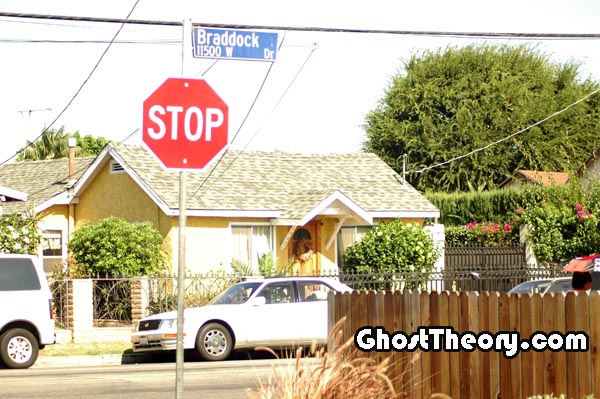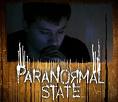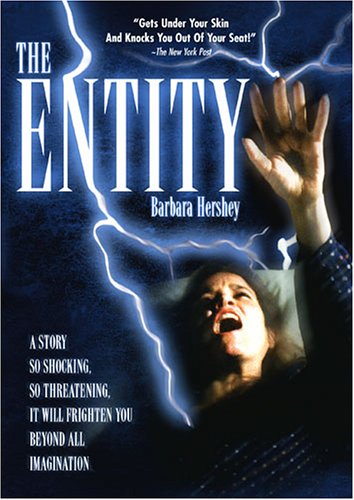
Finally, confirmation that I’m not crazy!
“Exploding Head Syndrome” is a real sleep disorder. Many people experience this at least once in their lifetime. I’m sure some paranormal stories can be attributed to this syndrome. I’ve have it happen to me twice, as far as I can recall. The feeling is not pretty. After the abrupt wake-up your mind starts playing tricks on you. Did someone break in? Did a bomb go off? Am I shot?.
When I was living in the notorious area of East Los Angeles, For a moment, I used to wake up to the fire of semi-automatic weapons showering a neighborhood home. The quick bursts of the gun fire and glass breaking was enough to wake me up at night and make me drop to the side of my bed for a quick shelter. One night, I was out hanging out with some friends. I got home a little late and went straight for bed. While I was dozing off, I remember hearing this loud boom. It was loud enough to make me jump out of bed. I really thought someone had fired a shotgun inside my aunt’s home. As I tried to focus, I ran out the room to see what was going on. I went to my aunt’s room. She was up late at night watching television. I asked what the hell was that loud bang and she replied with a blank stare. She told me that she hadn’t heard a thing all night.
To me, that explosion was too real. I checked outside but the neighborhood was quiet.
It’s funny. Now I live in downtown Los Angeles and I hear explosions often. Only this time, It’s not in my head. These “mysterious explosions” happen in downtown at all hours. Last one was on Friday February 26, 2010. Just last week. It was close to midnight and my girlfriend and I were falling asleep watching some old movie. All of a sudden a deafening explosions rocked downtown. Windows shook, car alarms were going off and even our dog jumped up and ran. These “mysterious explosions” have been happening in downtown Los Angeles for awhile now. BlogDownTown has a story on them from a few years ago.
What are these mysterious explosions? I have no idea, but it gives me reassurance that it’s not all in my head.
Full source: MSNBC
By Diane Mapes
Marie Raymond sometimes wakes up in the middle of the night, heart pounding, freaked out by the sound of her name being shouted loud and clear. Other times she’ll be awakened by the sound of a huge crash, as if someone has broken a window or knocked over a set of dishes.
“The sound is terrifying — super loud, like someone has broken in,” says Raymond, a 38-year-old arts administrator from Seattle. “But when I get up to look around, nothing’s amiss and everything’s quiet.” After dealing with it off and on for the last several months, Raymond believes she may have exploding head syndrome. She hasn’t seen a doctor about it, but has done some research online.
As strange as the name sounds, exploding head syndrome is actually a rare and relatively undocumented sleep phenomenon. While sleeping or dozing, a person with the condition hears a terrifically loud sound in their head, such as a bomb exploding, a clash of cymbals or a gun going off.
“It’s usually described as a loud bang or pop that occurs in the first third of the night,” says Dr. Neil Kline, sleep physician and representative of the American Sleep Association in Wilmington, Del. “It’s a sensory phenomenon. The individual senses that some type of explosion has occurred nearby, but ultimately realizes it’s in their head. It’s not associated with pain or with any disorder that we know of and there are no physiological medical consequences that are associated with it.”
Thought to be brought on by anxiety or extreme fatigue and occurring in clusters during stressful periods, exploding head syndrome is not dangerous, according to the American Sleep Association Web site.
It can be disconcerting, though, stirring up images of a David Cronenberg movie. “Individuals can develop an aversion to falling asleep,” says Kline. “They’ll develop insomnia because they’re concerned by these occurrences. But they’re usually rare. I’ve never heard of it occurring regularly.”
First described in 1920 as a “snapping of the brain,” there is little to be found on the phenomenon in medical literature. Some patients experience a bright flash of light along with the loud explosion or crash, according to a 1989 study in the Journal of Neurology, Neurosurgery and Psychiatry that looked at 50 patients suffering from the syndrome. In almost every case there are physical aftereffects, such as “a sense of alarm, together with a cold sweat, labored breathing and tachycardia” (a rapid heart rate).
Or as Raymond puts it, you suddenly wake up “feeling like a character out of Poe.”
As for the explosions themselves, patients have described them as a shotgun blast, a thunderclap, a loud metallic noise, the clash of cymbals, a lightning strike or the sound of every door in the house slamming. Luckily, the crash, bang, or boom lasts only a few seconds and disappears as soon as the person awakens. Episodes, which are usually clustered over the course of a few days, will then disappear for months — or years — on end.
It’s unclear why stress would bring on a crashing sound in your head, although some have speculated that it may be the result of a movement of the middle ear component or of the eustachian tube.
J.M.S. Pearce, the British neurologist who coined the term, calls it a “mystery” requiring further study. He also felt the phenomenon was not as rare as some believe, perhaps due to people’s hesitancy to discuss it. “Many [patients] said they had been ashamed to mention it to their doctors or that their complaint had been greeted with incredulity if not frank disbelief,” he wrote in his 1989 study “Clinical features of the exploding head syndrome.” “It is entirely benign, and I suspect quite common, but underreported.”
Exploding head syndrome is said to happen more often after the age of 50 (although there have been reports of it happening in children) and believed to be more common among women. Due to the rarity of the syndrome, though, it’s hard to establish any kind of parameters, says Kline.
“I’m not convinced there’s good data that describes the demographic of this phenomenon,” he says. “I’ve only had a few patients during my career who have described it and no one has ever asked to be treated for it.”
Since the phenomenon is often linked to stress, sleep experts suggest relaxation techniques like exercise, reading before bedtime or yoga to help alleviate the episodes. According to studies, a few patients have also found relief by taking certain types of antidepressants. A 2001 study in the journal Current Pain and Headache Reports found “most sufferers require only reassurance that the spells are benign in nature.”
Read more: MSNBC
21 comments



